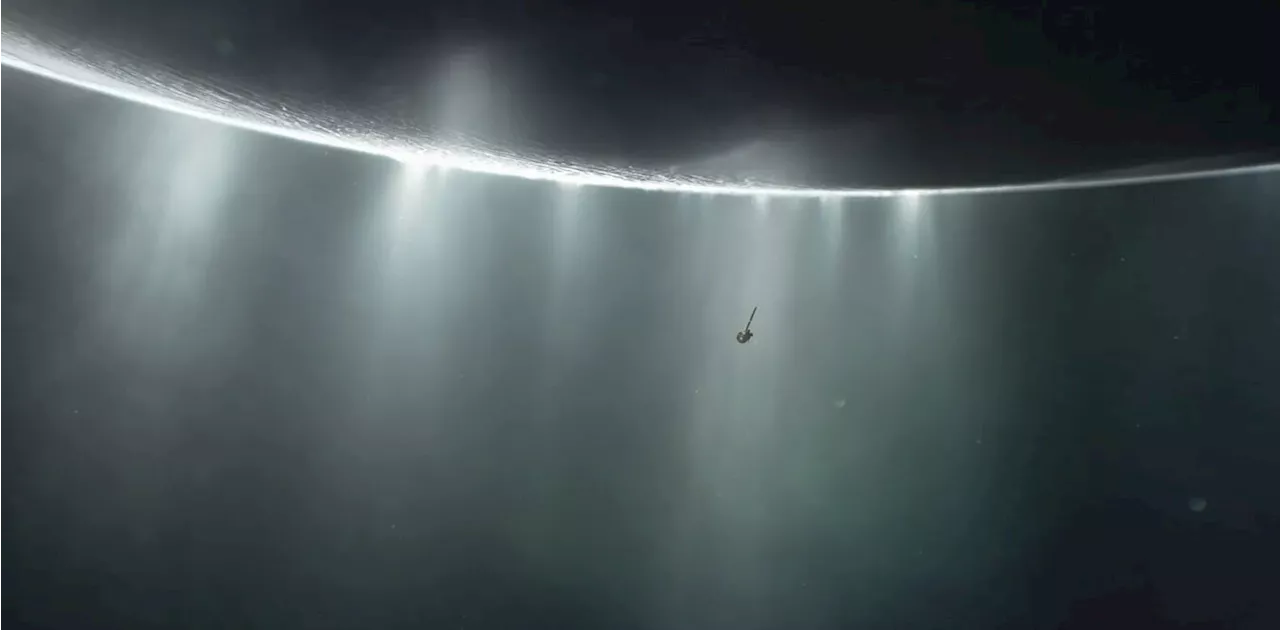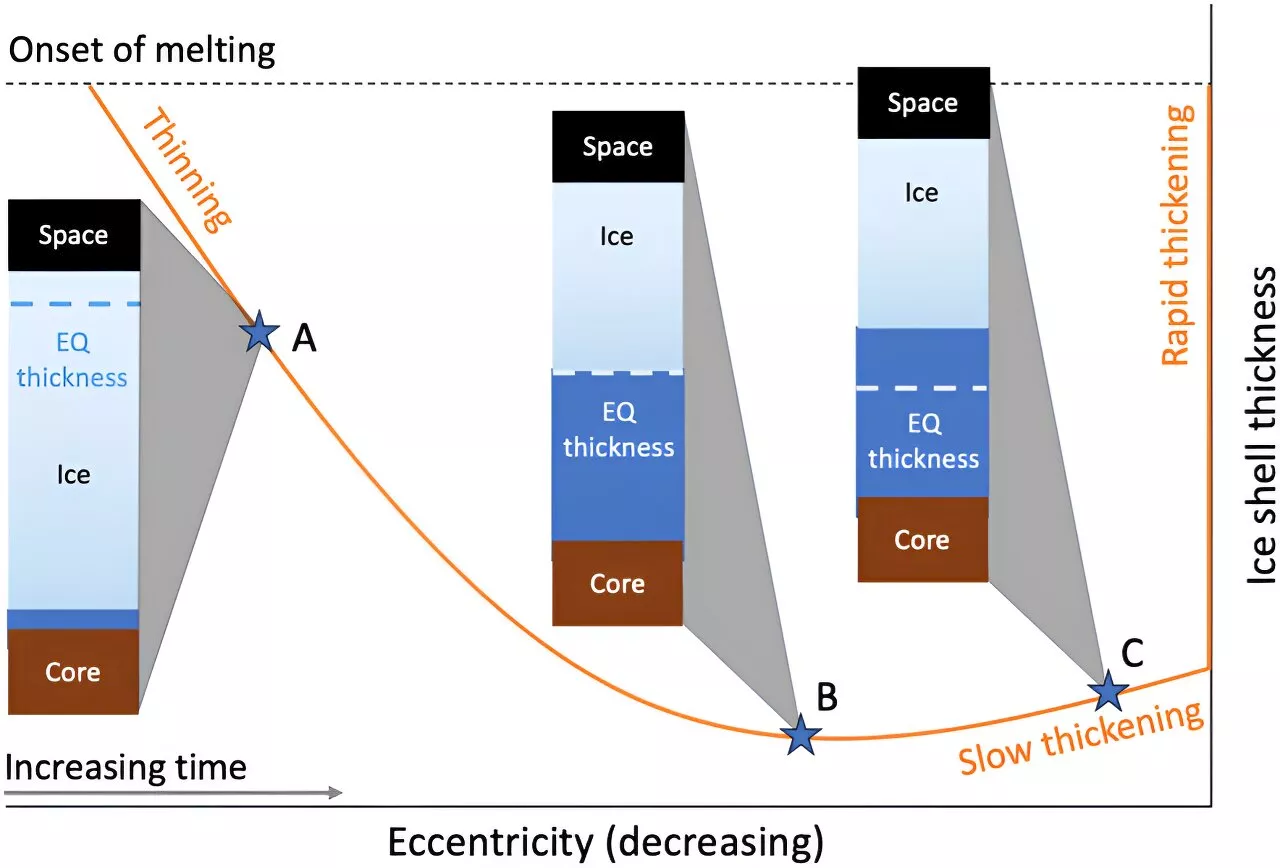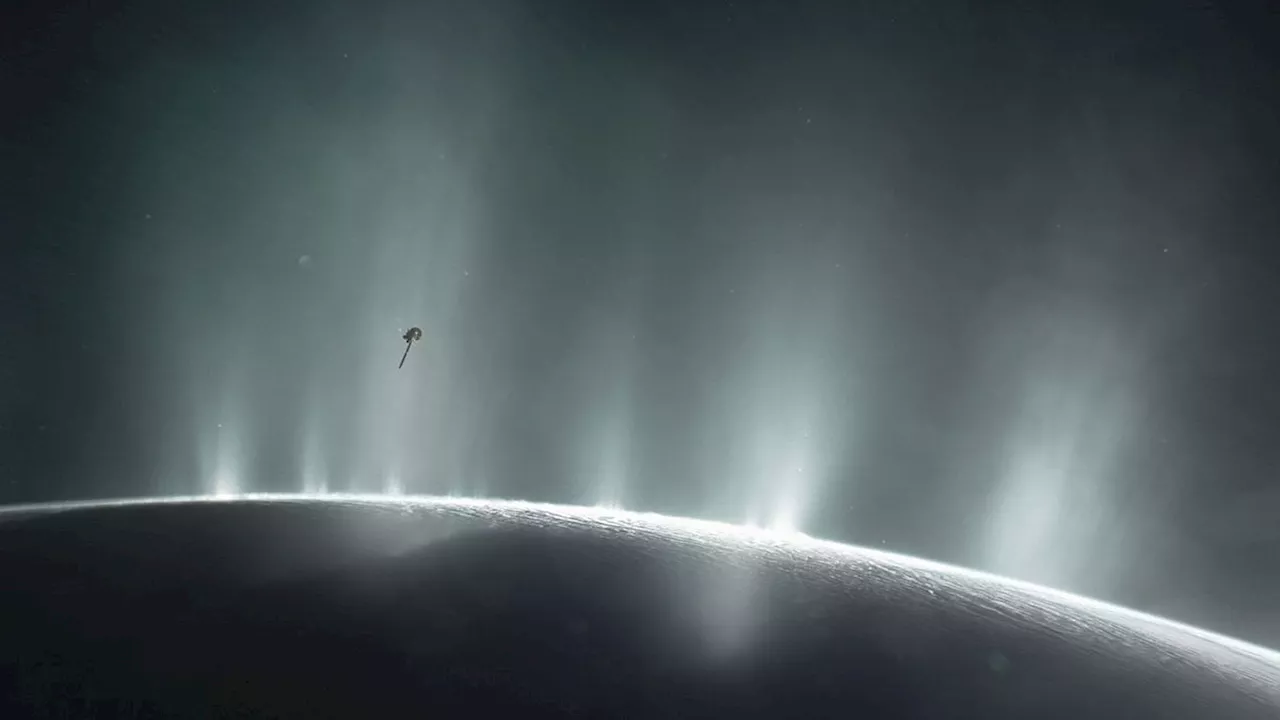Fabian Klenner is a planetary scientist and astrobiologist at the University of Washington (UW). His research focus lies on the exploration of icy moons in the Solar System, in particular Saturn's moon Enceladus and Jupiter's moon Europa.
is a planetary scientist and astrobiologist at the University of Washington . His research focus lies on the exploration of icy moons in the solar system, in particular Saturn's moon Enceladus and Jupiter's moon Europa.. Enceladus, only 313 miles in diameter, harbors a liquid water ocean beneath its icy crust that spans the entire moon.on the spacecraft. This instrument measured the emitted ice grains individually and told researchers about the composition of the subsurface ocean.
We found these instruments would do a good job identifying cellular material. Instruments designed to analyze single ice grains should be able to identify bacterial cells, even if there is only 0.01% of the constituents of a single cell in an ice grain from an Enceladus-like geyser. With these space agencies' near-future plans and the results of our study, the prospects of upcoming space missions visiting Enceladus or Europa are incredibly exciting. We now know that with current and future instrumentation, scientists should be able to find out whether there is life on any of these moons.
Before accepting his current position at UW in 2023, he was a Postdoctoral researcher at Freie Universität Berlin, the same university from where he received his Ph.D. in 2021. He studied Earth Sciences at Heidelberg University .cautiously optimistic at the prospect of finding life on any of the icy moons. For all we know, sunlight and/or lightning could be key components for abiogenesis, as well as other factors not present on these bodies.
United States Latest News, United States Headlines
Similar News:You can also read news stories similar to this one that we have collected from other news sources.
 Saturn's moon Enceladus top target for ESAA fresh, icy crust hides a deep, enigmatic ocean. Plumes of water burst through cracks in the ice, shooting into space. An intrepid lander collects samples and analyzes them for hints of life.
Saturn's moon Enceladus top target for ESAA fresh, icy crust hides a deep, enigmatic ocean. Plumes of water burst through cracks in the ice, shooting into space. An intrepid lander collects samples and analyzes them for hints of life.
Read more »
 Europe Has Big Plans for Saturn's Moon EnceladusEvery moon in the Solar System is interesting in some way. But the ocean moons demand to be explored, none more than Enceladus.
Europe Has Big Plans for Saturn's Moon EnceladusEvery moon in the Solar System is interesting in some way. But the ocean moons demand to be explored, none more than Enceladus.
Read more »
 A Single Grain of Ice Could Hold Evidence of Life on Europa and EnceladusThanks to mass spectrometers, space probes should be able to detect cellular material on individual ice grains.
A Single Grain of Ice Could Hold Evidence of Life on Europa and EnceladusThanks to mass spectrometers, space probes should be able to detect cellular material on individual ice grains.
Read more »
 Life on Enceladus? Europe eyes astrobiology mission to Saturn ocean moonKeith Cooper is a freelance science journalist and editor in the United Kingdom, and has a degree in physics and astrophysics from the University of Manchester.
Life on Enceladus? Europe eyes astrobiology mission to Saturn ocean moonKeith Cooper is a freelance science journalist and editor in the United Kingdom, and has a degree in physics and astrophysics from the University of Manchester.
Read more »
 Saturn's ocean moon Enceladus could support life—researchers are working out how to detect extraterrestrial cells thereSaturn has 146 confirmed moons—more than any other planet in the solar system—but one called Enceladus stands out. It appears to have the ingredients for life.
Saturn's ocean moon Enceladus could support life—researchers are working out how to detect extraterrestrial cells thereSaturn has 146 confirmed moons—more than any other planet in the solar system—but one called Enceladus stands out. It appears to have the ingredients for life.
Read more »
 Orbital eccentricity may have led to young underground ocean on Saturn's moon MimasSaturn's moon Mimas could have grown a huge underground ocean as its orbital eccentricity decreased to its present value and caused its icy shell to melt and thin.
Orbital eccentricity may have led to young underground ocean on Saturn's moon MimasSaturn's moon Mimas could have grown a huge underground ocean as its orbital eccentricity decreased to its present value and caused its icy shell to melt and thin.
Read more »
